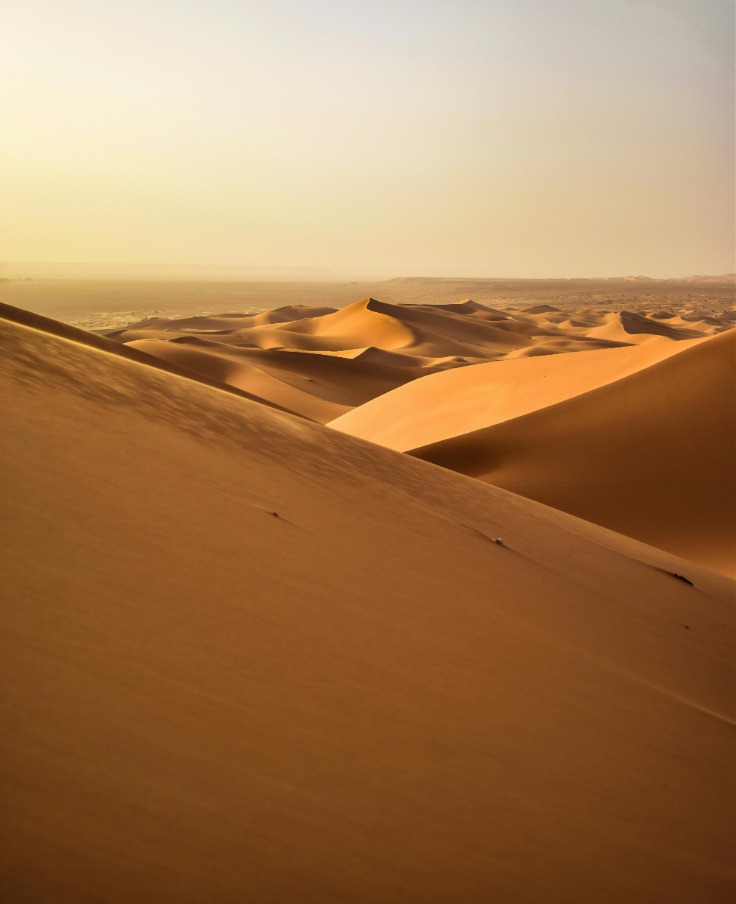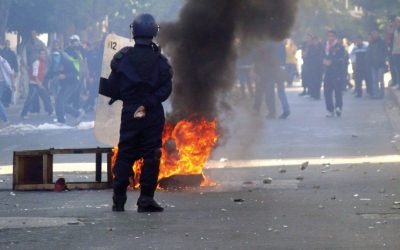Geographical Features of Algeria
Algeria, a vast country located on the continent of Africa, is renowned for its diverse geographical features. From expansive deserts to lush mountains, the nation’s landscape is both striking and varied. The Sahara Desert dominates much of the southern part, while the northern regions are characterized by fertile plains and the majestic Atlas Mountains. These diverse terrains significantly influence Algeria’s climate, ecology, and cultural heritage, making it a fascinating country to explore geographically.
Mountain Ranges
Algeria, located on the northern coast of Africa, features a diverse and striking geography characterized by several prominent mountain ranges. These mountains contribute significantly to the country’s landscape, climate, and biodiversity, making Algeria a continent of varied terrains.
- The Tell Atlas Mountains run parallel to the Mediterranean coast and are the most extensive mountain range in Algeria. They form a natural barrier between the coast and the interior plains, featuring lush valleys and fertile lands.
- The Saharan Atlas, part of the larger Atlas Mountain system, extends across the northern part of the Sahara Desert. These mountains are characterized by rugged terrain, deep gorges, and oases.
- The Aurès Mountains, located in northeastern Algeria, are known for their steep slopes, deep valleys, and rich cultural heritage. They also serve as a significant historical and geological region.
- The Hoggar Mountains, situated in southern Algeria near the city of Tamanrasset, are notable volcanic formations that form a rugged and isolated highland area within the Sahara Desert.
- The Saharan Sahara’s interior includes isolated peaks and plateaus that add to Algeria’s complex topographical features, distinguished by vast sand dunes and rocky outcrops.
Deserts and Plateaus
Algeria, a prominent country in North Africa, boasts diverse geographical features that define its landscape. The country is characterized by extensive deserts and plateaus that contribute to its unique topography. The Sahara Desert dominates much of southern Algeria, covering approximately four-fifths of the national territory, presenting vast stretches of sand dunes, gravel plains, and oases. This desert landscape influences the climate and flora of the region, creating harsh, arid conditions. In contrast, the northern part of Algeria features a series of high plateaus, including the Hautes Plaines, which are elevated flatlands that lie between the Tell Atlas mountain range and the Sahara. These plateaus are characterized by their relatively moderate climate and rugged terrain, providing a stark contrast to the surrounding desert regions. The combination of expansive deserts and elevated plateaus shapes Algeria’s geography, contributing to its ecological diversity and landscape variations across the continent. This geographical makeup significantly influences the country’s climate, lifestyle, and economic activities such as agriculture and mining.
Coastal Plains and Beaches
Algeria, located in North Africa, boasts an extensive and diverse geographical landscape, including a significant stretch of coastal plains and beaches along the Mediterranean Sea. These coastal regions feature fertile plains that support agriculture and vibrant local communities. The beaches along the coast vary from sandy shores ideal for tourism and recreation to rocky coves that offer natural beauty and habitats for marine life. The climate in these areas is typically Mediterranean, with warm summers and mild, wet winters, making them popular destinations for both locals and visitors. The coastal plains serve as an important economic zone with ports, fishing industries, and tourism contributing significantly to the country’s economy.
Climate and Weather Patterns
Algeria, located in North Africa, experiences diverse climate and weather patterns that shape its landscapes and ecosystems. The country’s vast size and varied topography result in a range of climatic conditions, from arid deserts to Mediterranean coastal zones. Understanding these weather patterns is essential for appreciating Algeria’s environmental diversity and the ways it influences daily life, agriculture, and natural resources across the continent.
Mediterannean Climate
Algeria, located in North Africa, experiences a diverse range of climate and weather patterns due to its vast size and varied terrain. The country features several climate zones, with a predominance of Mediterranean climate along the northern coast. This climate is characterized by hot, dry summers and mild, wet winters, creating favorable conditions for agriculture and lush vegetation in coastal regions. Inland areas, particularly in the highlands and desert regions, experience more extreme temperatures and arid conditions, with the Sahara Desert dominating much of southern Algeria. The Mediterranean influence brings seasonal rainfall that supports local ecosystems and human settlements, while the interior deserts endure intense heat during summer months, often exceeding 40°C. Overall, Algeria’s climate is a complex interplay of coastal Mediterranean weather and harsh desert conditions, shaping the country’s natural environment and way of life.
Desert Climate
Algeria, located on the northern edge of the African continent, experiences diverse climate and weather patterns, with a significant portion of its territory characterized by a desert climate. This type of climate is predominantly found in the Sahara Desert region, which covers a vast area of southern Algeria. Desert climates are marked by extremely low rainfall, high temperatures during the day, and cooler temperatures at night. In Algeria, summer temperatures often soar above 40°C (104°F), creating harsh conditions that limit vegetation and water resources. Conversely, the northern coastal areas have a Mediterranean climate with mild, wet winters and warm, dry summers. The contrasting climatic zones across Algeria are shaped by its geographical features, such as the Atlas Mountains and the vast expanse of the Sahara, influencing local weather patterns and ecological environments. This diverse climate greatly impacts the lifestyle, agriculture, and natural landscape of the country.
Regional Climate Variations

Algeria, located in North Africa, exhibits diverse climate and weather patterns due to its vast size and geographical features. The northern coastal areas have a Mediterranean climate, characterized by mild, wet winters and hot, dry summers. In contrast, the interior regions, particularly the Sahara Desert, experience an arid climate with extremely high temperatures during the day and significant temperature drops at night. The southern parts of Algeria are dominated by desert conditions, with very little rainfall and sparse vegetation.
Regional climate variations in Algeria are heavily influenced by its topography. The Tell Atlas mountain range acts as a natural barrier, affecting rainfall distribution and creating wetter conditions in the northern plains. Conversely, the Sahara Basin to the south is largely dry, with minimal rainfall and intense heat year-round. The differing climates impact agriculture, water resources, and settlement patterns across the country, making Algeria a land of varied weather conditions. These regional differences highlight the complex interactions between geography and climate on the continent of Algeria.
Historical Background and Colonial Legacy
Algeria’s rich historical background is deeply rooted in its colonial past, which has significantly shaped its social, political, and economic landscape. The legacy of colonial rule, particularly French colonization, left lasting impacts on the country’s identity, borders, and development trajectory. Understanding this historical context is essential to comprehending Algeria’s modern nationhood and its ongoing efforts to reclaim sovereignty and cultural heritage.
Ancient Civilizations
Algeria’s historical background is deeply intertwined with its colonial past and the legacy of ancient civilizations that once flourished on its territory. The region has witnessed a complex series of cultural influences, from early indigenous societies through periods of colonization, shaping its diverse identity today.
During antiquity, Algeria was home to several prominent ancient civilizations, including the Berbers, Phoenicians, Carthaginians, Romans, Byzantines, and later Arab dynasties. These civilizations contributed to the development of sophisticated societies, trade networks, and cultural exchanges that laid the foundation for modern Algerian society.
The colonial legacy of Algeria was notably marked by French colonization from 1830 to 1962, during which the country experienced significant social, economic, and political upheaval. The struggle for independence fueled national identity and resistance movements, ultimately leading to independence and shaping the country’s modern political landscape.
- Ancient Civilizations: Berbers, Phoenicians, Carthaginians, Romans, Byzantines
- Colonial Period: French rule from 1830 to 1962
- Independence and Modern Development: Post-1962 liberation and nation-building
French Colonial Period
The French colonial period in Algeria began in 1830 when France invaded and subsequently established control over the territory, marking a significant phase in the country’s history. This colonization was characterized by extensive administrative, economic, and social changes aimed at integrating Algeria into the French Empire. The colonial authorities implemented policies that transformed the land, promoted French settlement, and exploited Algeria’s resources, often at the expense of the local population.
The legacy of French colonization has had profound and lasting effects on Algeria. The period was marked by widespread resistance from Algerians, who sought independence amid economic disparities and cultural suppression. These struggles eventually culminated in the Algerian War of Independence (1954-1962), which was one of the most violent decolonization conflicts in Africa. The end of French rule led to the establishment of an independent Algerian state, but the colonial legacy remains visible in the country’s legal, educational, and social systems, as well as in ongoing discussions about identity and sovereignty.
Road to Independence
Algeria’s historical background is deeply rooted in its rich indigenous Berber traditions, Arab Islamic influences, and periods of colonization that have shaped its national identity. During the 19th century, Algeria became a French colony, leading to significant social, economic, and cultural changes that impacted its population. French rule was characterized by settlement policies, economic exploitation, and suppression of local customs, which fostered resentment and resistance among Algerians. The colonial legacy left a lasting imprint on the country’s infrastructure, legal systems, and social disparities.
The road to independence was marked by a fierce struggle fueled by the desire for self-determination and liberation from oppressive colonial rule. The National Liberation Front (FLN) spearheaded the fight, initiating widespread uprisings and guerrilla warfare in the 1950s. This protracted conflict, known as the Algerian War of Independence, drew both national and international attention, eventually leading to the Évian Accords of 1962. These accords formally recognized Algeria as an independent state, ending over a century of French colonial domination and paving the way for nation-building and sovereignty.
Political Structure and Governance
Algeria, a significant country on the African continent, exhibits a complex political structure and governance system shaped by its history and cultural diversity. Its political framework combines republican principles with strong executive authority, primarily led by the President. Understanding Algeria’s political structure provides insight into how power is distributed, how decisions are made, and the role of various institutions in maintaining stability and fostering development across the nation.
Government System
Algeria, located on the continent of Africa, has a political structure rooted in a semi-presidential republic system. The government is characterized by a division of powers among the executive, legislative, and judiciary branches, ensuring a system of checks and balances. The President of Algeria serves as the head of state and is responsible for appointing the Prime Minister and Cabinet, as well as representing the nation internationally. The Parliament consists of two chambers: the National People’s Assembly and the Council of the Nation, which are tasked with enacting laws and overseeing the executive branch. The country’s governance emphasizes a centralized political authority with significant influence from the ruling party and political institutions that shape policy and national development. Overall, Algeria’s government system reflects a combination of traditional authority and republican governance, tailored to its historical and social context.
Political Parties and Elections
Algeria, located in North Africa, has a political structure characterized by a semi-presidential republic system. The government comprises a President who serves as the head of state and a Prime Minister who is the head of government, with both roles sharing executive responsibilities. The Algerian Parliament is bicameral, consisting of the National People’s Assembly and the Council of the Nation, which are responsible for legislative functions.
Political parties in Algeria are diverse, with the National Liberation Front being the dominant party historically. Others include the National Rally for Democracy and various Islamist and independent parties, reflecting a multiparty system. The political landscape often involves shifts in influence among these groups, especially around election periods.
Algeria holds regular elections to determine leadership and legislative representatives. Presidential elections are typically conducted every five years, with candidates representing different political parties or running independently. The electoral process is overseen by independent bodies, although elections have faced international scrutiny over issues related to transparency and fairness. Legislative elections also occur periodically, allowing political parties to gain seats and influence policy-making, shaping the country’s governance and political direction.
Administrative Divisions
Algeria, located in North Africa, has a political structure characterized by a semi-presidential system that combines both presidential and parliamentary elements. The President is the head of state and holds significant executive power, while the Prime Minister serves as the head of government, overseeing daily administrative functions. The Algerian Parliament consists of two chambers: the Council of the Nation (upper house) and the People’s National Assembly (lower house), which are responsible for making national laws and policies.
Administrative divisions in Algeria are organized into provinces, known as “wilayas,” which serve as the primary administrative units. Each wilaya is governed by a wali (provincial governor) appointed by the central government. These provinces are further subdivided into districts called “daïras” and then into municipalities or “communes.” This hierarchical structure facilitates local governance and administration across Algeria’s extensive territory, ensuring government services are accessible at various levels. The decentralization efforts aim to promote regional development and administrative efficiency throughout the country.
Economy and Natural Resources
Algeria, located in North Africa, possesses a rich wealth of natural resources that significantly contribute to its economy. The country’s vast deserts and fertile lands provide a variety of natural assets, with oil and natural gas being the cornerstone of its economic development. These resources have played a pivotal role in shaping Algeria’s industrial landscape and export capabilities, making it one of the leading energy producers in the continent. Understanding the relationship between Algeria’s economy and its natural resources offers insight into its growth potential and challenges faced in sustainable development.
Oil and Gas Industry
Algeria, situated in North Africa, is a prominent player in the economy largely due to its rich natural resources, particularly in the oil and gas industry. The country possesses extensive reserves of hydrocarbons, making it one of the leading oil and gas producers on the continent. These resources significantly contribute to Algeria’s GDP, government revenue, and export earnings, positioning the nation as a key energy supplier in the region and globally.
The oil and gas sector in Algeria is characterized by large state-owned enterprises such as Sonatrach, which control the exploration, production, and export of hydrocarbons. The industry has attracted significant foreign investment, allowing technological advancements and increased production capacity. However, the reliance on fossil fuels also makes the economy vulnerable to fluctuations in global oil prices, prompting discussions on diversifying the economic base.
Algeria’s natural resources extend beyond hydrocarbons to include minerals and other valuable commodities, but oil and gas remain the dominant sectors shaping its economic landscape. The government continues to implement policies aimed at developing renewable energy sources to reduce dependency on fossil fuels and to promote sustainable economic growth. Overall, Algeria’s oil and gas industry remains a cornerstone of its economy, influencing socio-economic development and regional influence within Africa and beyond.
Agriculture and Food Production
Algeria, located in North Africa, boasts a diverse economy that relies heavily on its natural resources, particularly hydrocarbons. The country is one of the world’s leading producers of oil and natural gas, which constitute the backbone of its economy and generate substantial revenue for the government. These resources have driven economic growth but also present challenges related to diversification and sustainable development.
Agriculture in Algeria plays a significant role in the economy and food security, although it faces obstacles such as water scarcity, limited arable land, and outdated farming techniques. The country primarily produces cereals, citrus fruits, olives, and vegetables to meet domestic needs, with efforts underway to modernize and expand agricultural productivity. Despite these efforts, reliance on food imports remains high, which exposes the economy to global market fluctuations.
Overall, Algeria’s natural resources are a vital economic asset, yet the country recognizes the importance of developing other sectors, including agriculture and industry, to ensure long-term stability and resilience. Sustainable management of natural resources and investment in agricultural innovation are key to improving food security and reducing dependence on imports.
Mining and Industry
Algeria, located in North Africa, boasts abundant natural resources that significantly influence its economy. The country is rich in hydrocarbons, particularly oil and natural gas, which are the primary drivers of its economic growth and export revenues. The mining sector also includes mineral resources such as iron ore, phosphates, and copper, contributing to diverse industrial activities. Industry in Algeria is heavily centered around hydrocarbon processing, petrochemicals, and refining, with ongoing efforts to diversify the economy by developing other sectors. The management of natural resources plays a crucial role in shaping Algeria’s economic stability and development trajectory for the future.

Culture and Society
Culture and society in Algeria are rich and diverse, reflecting a unique blend of traditions, history, and modern influences. Located on the African continent, Algeria’s cultural landscape is shaped by Arab, Berber, French, and Mediterranean elements, creating a vibrant and multifaceted societal fabric. Understanding the cultural dynamics of Algeria offers insight into its people’s identities, customs, and social norms.
Language and Ethnic Groups
Algeria, located in North Africa, boasts a rich tapestry of culture and society shaped by its diverse language and ethnic groups. The country’s cultural identity reflects centuries of history influenced by Arab, Berber, Ottoman, and French civilizations, creating a unique blend of traditions, music, cuisine, and art.
The linguistic landscape of Algeria is multifaceted, with Modern Standard Arabic and Berber languages recognized as official. Arabic is widely spoken across the country, serving as the language of education and media. Tamazight, the Berber language, also holds official status and is increasingly promoted to preserve indigenous heritage. French remains prevalent, especially in business, government, and higher education, owing to historical colonial ties.
Algeria’s ethnic composition is primarily made up of Arab-Berber groups, with the Berbers (Amazigh) constituting a significant minority that maintains distinct cultural and linguistic traditions. Other ethnic communities include sub-Saharan Africans and small European populations, particularly in cities like Algiers and Oran. The coexistence of these diverse groups contributes to the country’s dynamic social fabric.
- Arab-Berber identity forms the core of Algerian cultural expression
- Official languages include Arabic and Berber, with French widely used in various sectors
- Ethnic groups maintain distinct traditions, especially among Berbers
- Cultural festivals, music like Rai and Kabyle, and traditional crafts play vital roles in society
- Language policies aim to promote and preserve indigenous Berber languages alongside Arabic and French
Religious Practices
Algeria, located in North Africa, boasts a rich cultural heritage deeply rooted in its history and diverse societal influences. Its society is characterized by a blend of Arab, Berber, and French elements, reflecting centuries of interaction and integration. Religious practices play a significant role in daily life, with Islam being the predominant faith. The majority of Algerians are Sunni Muslims, and religious customs are deeply intertwined with cultural traditions, influencing social norms, festivals, and community gatherings. Despite the modern influences and secular policies, religious observances such as Ramadan, Eid celebrations, and prayer remain central to many Algerian lives, shaping both social structures and cultural identity. The coexistence of traditional practices and contemporary lifestyles highlights the dynamic nature of Algerian society and its enduring religious heritage.
Traditional Festivals and Celebrations
Algeria, a country rich in history and tradition, boasts a vibrant culture deeply rooted in its diverse societal influences. Traditional festivals and celebrations play a significant role in preserving cultural identity and fostering community spirit across the nation.
One of the most notable festivals is Yennayer, the Amazigh New Year, celebrated by Berber communities to mark the beginning of a new year with rituals, music, and dance that honor their heritage. Ramadan, observed nationwide, involves communal gatherings for fast-breaking and special prayers, highlighting the importance of religion in Algerian society.
Independence Day on July 5th commemorates Algeria’s struggle for freedom with patriotic events, parades, and cultural displays that unite the nation in pride. Other celebrations include traditional music festivals, such as those featuring Rai and Andalusian music, which reflect the country’s diverse cultural influences from Arab, Berber, and Andalusian roots.
Throughout the year, local towns and villages host various folk festivals showcasing traditional crafts, gastronomy, and dance, allowing communities to preserve and pass down their customs to younger generations. These festivities highlight Algeria’s rich cultural mosaic and emphasize the importance of tradition in maintaining social cohesion.
Tourism and Landmarks
Algeria, located in the heart of the African continent, is a treasure trove of diverse landscapes and historic landmarks that attract travelers from around the world. Its rich cultural heritage, stunning natural scenery, and ancient sites make it a captivating destination for those seeking adventure and history. Exploring Algeria offers a unique opportunity to discover the beauty and complexity of North Africa’s largest country.
Historical Sites
Algeria, a country rich in history and natural beauty, offers a wealth of attractions for travelers interested in tourism and landmarks. Its diverse landscapes range from the vast Sahara Desert to lush coastal regions, making it an ideal destination for various interests. Visitors can explore ancient ruins, vibrant cities, and stunning natural parks that showcase the country’s cultural and historical heritage.
Among the most famous historical sites in Algeria are the Roman-era ruins of Timgad and Djemila, which offer glimpses into the country’s ancient past. The Casbah of Algiers, a UNESCO World Heritage Site, is a historic medina with winding streets, colonial architecture, and museums that reflect Algeria’s complex history. Additionally, the Tassili n’Ajjer National Park is renowned for its prehistoric rock art and unique sandstone formations, attracting both nature lovers and archaeologists alike.
Other notable landmarks include the ancient city of Constantine, perched dramatically on hillsides with impressive bridges connecting different parts of the city, and the Beni Hammad Fort, an early Islamic archaeological site. Across the country, these sites provide rich opportunities for tourists to discover Algeria’s diverse cultural and historical legacy.
Natural Attractions
Algeria, located on the northern coast of Africa, boasts a remarkable blend of tourism opportunities, historical landmarks, and stunning natural attractions. Its diverse landscape ranges from vast Sahara Desert expanses to lush mountains and Mediterranean coastline, making it a captivating destination for travelers seeking both adventure and culture.
One of Algeria’s most iconic landmarks is the ancient city of Algiers, featuring the Casbah, a UNESCO World Heritage site with narrow winding streets and historic architecture. The Roman ruins of Timgad and Djemila are remarkable remnants of the country’s rich history, attracting history enthusiasts from around the world. The ancient city of Tipasa offers breathtaking views of the Mediterranean and features unique Roman and early Christian ruins.
Natural attractions abound in Algeria, with the Sahara Desert being a major highlight. Visitors can explore majestic sand dunes such as the Grand Erg and enjoy camel treks and desert camping. The Tibesti Mountains in the south provide rugged landscapes for hiking and adventure tourism, while the Kabylie region offers verdant hills, cedar forests, and stunning waterfalls. The stunning Djurdjura Mountains are also a popular destination for trekking and enjoying panoramic vistas.
Overall, Algeria’s tourism scene is enriched by its intriguing landmarks and breathtaking natural sites, providing an unforgettable experience for explorers interested in history, culture, and the natural world.
Urban Destinations
Algeria, located on the northern coast of Africa, is a fascinating destination for tourism, offering a rich blend of natural beauty, historical landmarks, and vibrant urban environments. Its diverse landscapes range from the vast Sahara Desert to the Mediterranean coastline, making it an ideal location for travelers seeking both adventure and cultural exploration.
In terms of landmarks, Algeria boasts numerous sites of historical and cultural significance. The ancient Roman ruins of Timgad and Djemila showcase the country’s deep-rooted history, while the UNESCO World Heritage site of the Casbah of Algiers reflects its Ottoman and Arab heritage. Natural landmarks such as the Sahara dunes, the Hoggar Mountains, and the Tassili n’Ajjer National Park attract nature lovers and explorers alike.
Urban destinations in Algeria offer a unique blend of tradition and modernity. The capital city, Algiers, is known for its cosmopolitan vibe, historic architecture, and bustling markets like the Casbah district. Oran and Constantine are other vibrant cities offering cultural festivals, ancient kasbahs, and lively nightlife, providing visitors with a taste of urban Algerian life. Overall, Algeria presents an intriguing mix of historic sites and lively urban centers, making it a compelling destination for tourists seeking to discover the continent’s diverse heritage and landscapes.
Challenges and Development Initiatives
Algeria, a vast and diverse country in Africa, faces numerous challenges that impact its social, economic, and political development. Addressing issues such as unemployment, infrastructure needs, and educational reform requires comprehensive development initiatives. Through strategic efforts and international cooperation, Algeria is working towards overcoming obstacles and fostering sustainable growth for its future generations.
Economic Diversification
Algeria, as one of Africa’s largest economies, faces several challenges in its pursuit of economic diversification. Historically reliant on oil and gas exports, the country grapples with vulnerabilities associated with fluctuating global energy prices and the finite nature of fossil fuel resources. To address these challenges, Algeria has implemented various development initiatives aimed at broadening its economic base and fostering sustainable growth.
- Reducing dependence on hydrocarbon revenues by investing in non-oil sectors such as agriculture, manufacturing, and tourism.
- Enhancing infrastructure and logistical frameworks to support new industries and attract foreign investment.
- Implementing educational reforms to develop a skilled workforce aligned with diversified economic activities.
- Promoting innovation and technological development through incentives and partnerships with international organizations.
- Establishing special economic zones and business incubators to facilitate entrepreneurship and small-medium enterprise growth.
Development initiatives in Algeria include national programs like the “Third Industrialization Plan,” aimed at creating a more competitive industrial sector, and efforts to improve the business environment through regulatory reforms. Additionally, initiatives to harness renewable energy sources, particularly solar power, are part of Algeria’s strategy to diversify its energy portfolio and reduce reliance on fossil fuels. These combined efforts reflect Algeria’s commitment to overcoming economic challenges and building a resilient, diversified economy on the continent.
Environmental Concerns
Algeria, as a significant country in Africa, faces several challenges related to environmental concerns and development initiatives. Rapid urbanization, industrial growth, and reliance on fossil fuels have contributed to pollution, deforestation, and water scarcity. These issues threaten both ecosystems and public health, requiring comprehensive strategies for sustainable development.
Despite these challenges, Algeria has launched various development initiatives aimed at promoting renewable energy, improving waste management, and conserving natural resources. The government’s investments in solar and wind energy projects aim to reduce dependence on non-renewable sources while creating new economic opportunities. Additionally, efforts to reforest degraded areas and implement water-saving technologies are vital steps toward environmental preservation.
However, balancing economic growth with environmental sustainability remains a complex task. Climate change impacts, such as desertification and irregular rainfall patterns, further complicate development plans. Continued focus on environmental education, international cooperation, and innovative solutions is essential for Algeria to address these challenges and foster a sustainable future for its people and natural landscapes.
Regional Stability and Security
Algeria, situated in North Africa, faces a range of challenges affecting regional stability and security. Internal issues such as economic diversification, political reform, and social cohesion are critical to maintaining stability. External threats, including regional conflicts, terrorism, and cross-border insurgencies, pose significant risks. Development initiatives aimed at strengthening governance, boosting economic growth, and fostering regional cooperation are essential for long-term stability. Efforts to combat terrorism through enhanced security measures and intelligence sharing are ongoing, alongside initiatives to improve infrastructure and education. Regional stability in Algeria is also closely linked to neighboring countries, requiring collaborative efforts to address shared security concerns, promote peace, and support economic integration in the continent. Continued development and strategic regional partnerships are vital to overcoming challenges and ensuring sustainable security across the region.





0 Comments